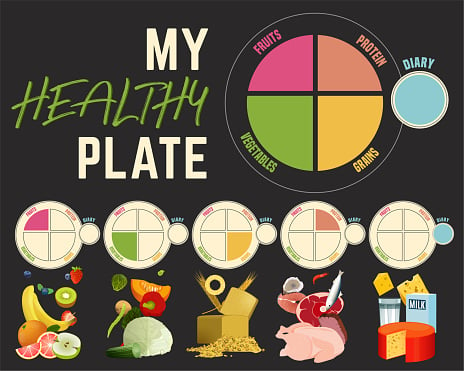The U.S. Department of Health and Human Services and the U.S. Department of Agriculture provide dietary guidelines for Americans that are updated every five years. Changes are made as our understanding of optimal nutrition science evolves and on July 15, the recommended 2020 dietary guidelines were published.
The process of updating these guidelines is, according to USNews.com, “rather grueling.” First, the dietary guidelines advisory committee that’s comprised of health and nutrition experts review the most recent report. Next, these nationally recognized professionals recommend additions or changes to the dietary guidelines.
Then, comments are requested, either written or publicly oral ones. On Aug. 11, a meeting was held about the 2020 dietary guidelines for this purpose, and a final version will probably be released by December.
Here is information about food and beverage recommendations that will likely be included.
Lowered Alcohol Consumption
Current recommendations allow for more alcohol consumption for men than women. Right now, it’s two daily drinks for men and one for women, with a drink being defined as:
- 12 ounces of beer
- 5 ounces of wine
- 1.5 ounces of 80-proof liquor
The committee considered how alcohol can add calories to the diet without much nutrition, as well as how alcoholic drinks can contribute to disease when consumed in larger amounts. The result? The guidelines will likely recommend that men also drink, at most, one alcoholic drink per day.
Focus on Unsaturated Fats
As part of the revised dietary guidelines for Americans, the new report is expected to focus on avoiding saturated fats as part of healthy eating patterns. Currently, the recommendation is that saturated fats account for, at most, 10% of total calories consumed. Because consumption of unsaturated fats can help people to reduce the risk of cholesterol problems, expect to see an emphasis on getting fat from sources such as extra virgin olive oil, avocado, salmon, and walnuts, as four examples.
Eating Less Added Sugar
Current guidelines state that only 10% of total calories should come from added sugar, and new guidelines will likely change that figure to 6%. Cutting back on food and beverages with added sugar can help to reduce the risk of obesity and chronic diseases alike. Places where this extra sugar can lurk include in lemonade, iced tea and sodas, as well as in snack foods, breakfast cereal, baked goods, and so forth.
Eating Patterns: Inconclusive
The dietary guidelines advisory committee discussed the optimal number of meals daily, how often snacking is acceptable, and so forth, but didn’t come to a conclusion. They did, however, suggest that people should follow healthy eating patterns, such as those included in a plant-based diet or the Mediterranean diet. These diets have a focus on fresh fruits, vegetables, whole grains and so forth.
Overall, the U.S. Department of Health and Human Services reports, “The latest edition of the Dietary Guidelines reflects the current body of nutrition science, helps health professionals and policymakers guide Americans to make healthy food and beverage choices, and serves as the science-based foundation for vital nutrition policies and programs across the United States.”
A Note About the 2015-2020 Dietary Guidelines
While waiting for approval of the 2020-2025 guidelines, people can follow the 2015-2020 version. Although it’s true that dietary guidelines for Americans are updated every five years to take advantage of the best of nutrition science, the current edition of the dietary recommendations is still valuable with its focus on optimal health eating patterns. As just one example, here are the current recommendations for people following a plant-based diet or the Mediterranean one.











